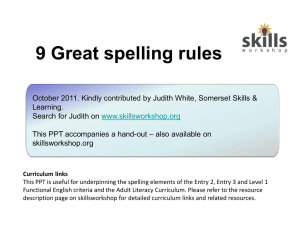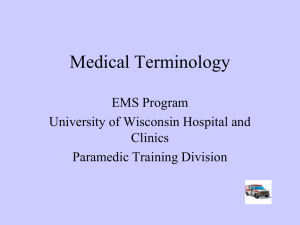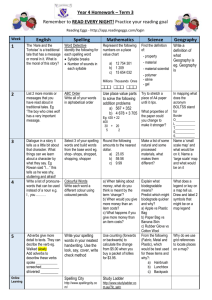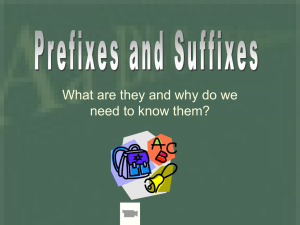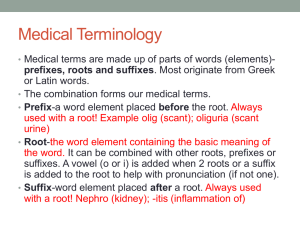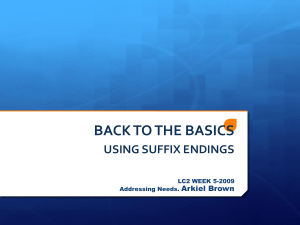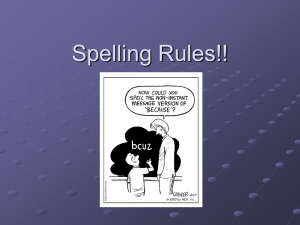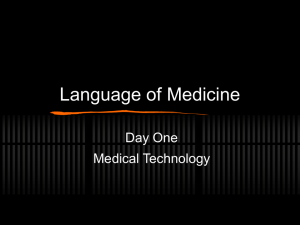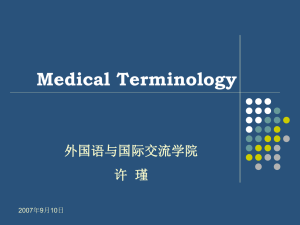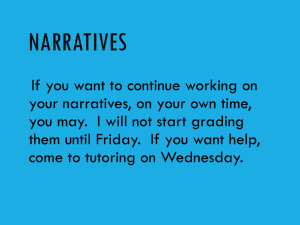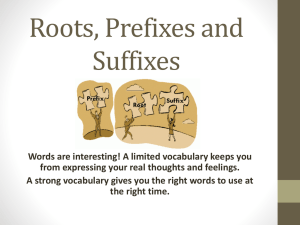Year 4 - Group 5
advertisement
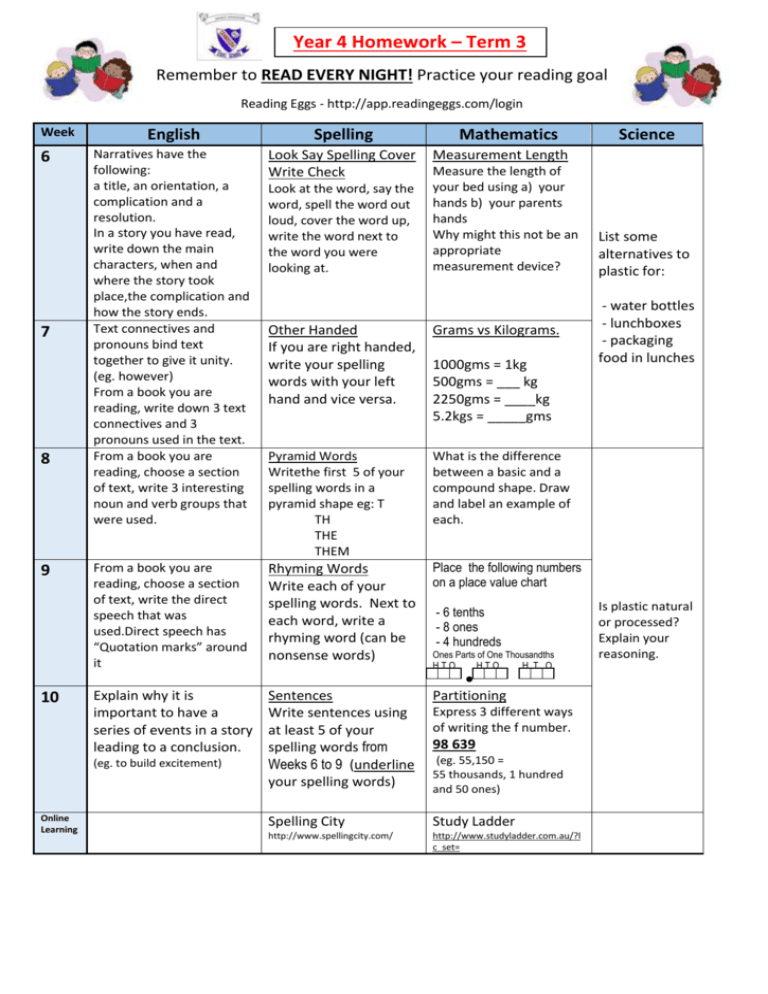
Year 4 Homework – Term 3 Remember to READ EVERY NIGHT! Practice your reading goal Reading Eggs - http://app.readingeggs.com/login Week 6 7 8 9 English Spelling Narratives have the following: a title, an orientation, a complication and a resolution. In a story you have read, write down the main characters, when and where the story took place,the complication and how the story ends. Text connectives and pronouns bind text together to give it unity. (eg. however) From a book you are reading, write down 3 text connectives and 3 pronouns used in the text. From a book you are reading, choose a section of text, write 3 interesting noun and verb groups that were used. Look Say Spelling Cover Write Check From a book you are reading, choose a section of text, write the direct speech that was used.Direct speech has “Quotation marks” around it Look at the word, say the word, spell the word out loud, cover the word up, write the word next to the word you were looking at. Mathematics Measurement Length Measure the length of your bed using a) your hands b) your parents hands Why might this not be an appropriate measurement device? Other Handed If you are right handed, write your spelling words with your left hand and vice versa. Grams vs Kilograms. Pyramid Words Writethe first 5 of your spelling words in a pyramid shape eg: T TH THE THEM What is the difference between a basic and a compound shape. Draw and label an example of each. Rhyming Words Write each of your spelling words. Next to each word, write a rhyming word (can be nonsense words) Place the following numbers on a place value chart 1000gms = 1kg 500gms = ___ kg 2250gms = ____kg 5.2kgs = _____gms - 6 tenths - 8 ones - 4 hundreds Ones Parts of One Thousandths HTO HTO H T O ● 10 Explain why it is important to have a series of events in a story leading to a conclusion. (eg. to build excitement) Online Learning Science Sentences Write sentences using at least 5 of your spelling words from Weeks 6 to 9 (underline your spelling words) Partitioning Spelling City Study Ladder http://www.spellingcity.com/ http://www.studyladder.com.au/?l c_set= Express 3 different ways of writing the f number. 98 639 (eg. 55,150 = 55 thousands, 1 hundred and 50 ones) List some alternatives to plastic for: - water bottles - lunchboxes - packaging food in lunches Is plastic natural or processed? Explain your reasoning. SPELLING FOR GROUP FIVE TERM 3 2015 WEEK 1 Consolidation Yr 4 Unit 1 Week 5 & Unit 2 Week 1 Complex Consonants – ‘dge’ ‘str’ ‘tch’ ‘squ’ Silent letters - ‘tch’ ‘kn’ ‘gn’ ‘wr’ sketch squirt stretch squawk hutch squirrel catch squeeze latch knotted knuckle square knitting gnocchi knead gnashing knowledge wrinkle edge wrapped judge The ‘tch’ pattern is most often following a short vowel (pitch) while ‘ch’ is often after another consonant or vowel pattern (lunch, reach). LEM rules – ‘wr’and ‘kn’ may only be used to represent ‘r’ at the beginning of a base word. ‘tch’ is usually used to represent the sound ch after a single vowel in a one syllable word. The vowel does not always say its first sound. ‘gn’ may be used to represent the sound ‘n’ at the beginning or at the end of a base word. ‘dge’ may only be used to represent the sound ‘j’ at the end of a word after a single vowel which says its first sound – a, e, i, o or u. WEEK 3 Focus Area AFFIXES Yr 6 Unit 1 Week 2 Suffixes — ‘ance’, ‘ence’ Yr 4 Unit 4 Wk 4 Suffix – ‘ous’ WEEK 2 Consolidation Yr 4 Unit 2 Week 2 Vowels – diphthongs ‘oi’ ‘oy’ and ‘ou’ Yr 4 Unit 1 Week 4 Doubling Final Consonant disloyal allow voice amount moisture doubt dough through employ ground voyage avoid wrapping trapped shopping hottest quitting spotty dragged knotty stopped tripped WEEK 3 Focus Area – WEEK 4 Focus Area – WEEK 5 Focus Area - Unaccented final syllables Yr 4 Unit 3 Week 3 Unaccented final syllables — ‘le’ and ‘el’ Unaccented final syllables Yr 4 Unit 3 Week 4 Unaccented final syllables — ‘il’ and ‘al’ Unaccented final syllables Yr 4 Unit 4 Week 3 Final syllables — ‘er’, ‘ar’ and ‘or’ principle candle example double miracle staple handle vehicle couple tremble council pencil nostril April civil tonsil stencil pupil fossil principal another border answer reporter gather whether rather burglar collar lunar jewel fuel caramel level quarrel novel hotel tunnel cancel funnel normal journal animal material social equal festival special dental hospital solar popular regular similar familiar mirror meteor cursor editor visitor Unit 2 - A diphthong is a vowel sound that glides from one sound to another in a quick, smooth movement. Ambiguous vowels can be challenging to spell as the same pattern can make different sounds, such as ‘ou’ in ‘dough’ and ‘through’ Unit 1 - Doubling consonants at the syllable juncture preserves the short vowel sound e.g. ‘hŏp’ becomes ‘hŏp/ping’. If the consonant is not doubled the syllable becomes open and the vowel can become long e.g. ‘hŏp’ – ‘hō/ping’. Exceptions to this generalisation include most words that end in ‘w’ (draw) or ‘x’ (wax). LEM Rules – ‘oi’ – may not be used at the end of word. English words don’t end in ‘I’. Can be used within a syllable. ‘oy’ is used to represent the sound ‘oy’ at the end of a syllable if a vowel follows (voyage, foyer, royal, disloyal) Words with the final syllables ‘le’, ‘el’, ‘il’ and ‘al’ can be challenging to spell as the difference cannot always be heard. For example, ‘principle’, ‘level’, ‘pencil’ and ‘dental’. The syllables are unaccented or have less stress. The vowel sound is neither short nor long. It is useful to remember that the ending ‘le’ is far more common than ‘el’. Use your visual spelling knowledge to learn the shape and spelling of these words. Words with the final syllables ‘le’, ‘el’, ‘il’ and ‘al’ can be challenging to spell as the difference cannot always be heard. For example, ‘principle’, ‘level’, ‘pencil’ and ‘dental’. The syllables are unaccented or have less stress. The vowel sound is neither short nor long. It is useful to remember that the ending ‘le’ is far more common than ‘el’. Use your visual spelling knowledge to learn the shape and spelling of these words. The final syllables ‘er’, ‘ar’ and ‘or’ are usually unaccented (unstressed) syllables making it difficult to hear the difference in the vowel sound. There are a few generalisations that may assist in remembering these words: •comparatives are always spelt ‘er’ •the final syllable ‘er’ is more common than ‘ar’ or ‘or’ •adding a suffix may help to hear the difference e.g. similar – similarity. Use visual spelling knowledge. WEEK 4 Focus Area AFFIXES Yr 4 Unit 4 Week 4 Suffixes — ‘tion’, ‘ous’, ‘y’ and ‘ish’ WEEK 5 Focus Area – AFFIXES Yr 4 Unit 3 Week 5 Prefixes — ‘un’, ‘re’, ‘dis’ and ‘mis’ WEEK 3 Focus Area – AFFIXES Yr 5 Unit 7 Week 5 Suffixes — ‘able’, ‘ible, ‘ous’ and ‘eous’ WEEK 4 Focus Area – AFFIXES Yr 5 Unit 2 Week 3 Suffixes — ct + ‘ion’, ss + ‘ion’, t + ‘ion’ and ‘e’ drop + ‘ion’ acceptance anxious appearance famous guidance jealous defiance disastrous instance dependence confidence patience intelligence difference The suffix ‘tion’ changes words into nouns, for example educate (verb) – education (noun). The suffix ‘ous’, ‘y’ and ‘ish’ form adjectives, for example fame (noun) – famous (adjective); thirst (noun) – thirsty (adjective); child (noun) – childish (adjective). The suffixes ‘tion’ and ‘ish’ mean ‘state of being’. The suffix ‘ous’ means ‘full of’ and the suffix ‘y’ means ‘like’. education cloudy collection thirsty illustration hungry concentration fussy separation nosey anxious childish famous foolish jealous stylish disastrous longish dirty selfish The suffix ‘tion’ changes words into nouns, for example educate (verb) – education (noun). The suffix ‘ous’, ‘y’ and ‘ish’ form adjectives, for example fame (noun) – famous (adjective); thirst (noun) – thirsty (adjective); child (noun) – childish (adjective). The suffixes ‘tion’ and ‘ish’ mean ‘state of being’. The suffix ‘ous’ means ‘full of’ and the suffix ‘y’ means ‘like’. unusual disagree unclean dishonest unable discovery unhappy disappear uncommon disobey research mistrust recharge mistook recycle misspell refill misprint remind misbehave Prefixes change the meaning of the base word. The prefixes ‘un’ and ‘dis’ mean not; ‘re’ means again; and ‘mis’ means wrong. Knowing the meanings of prefixes helps with word building and making meaning. For example: ‘unbelievable’ means not believable; ‘disagree’ means to not agree; ‘refill’ means to fill again fashionable suitable comfortable favourable agreeable changeable responsible horrible eligible incredible possible edible visible joyous dangerous mysterious humorous famous gorgeous courteous Suffixes are morphemes that are placed at the end of words (or base words). Suffixes change the base word and how it is used. Suffixes can turn words into nouns, adjectives, adverbs or verbs. The suffix ‘able’ is usually added to base words (for example, fashion/able), while the suffix ‘ible’ is usually added to root words (for example, horr/ible). The suffixes ‘able’ and ‘ible’ sound the same. Sometimes it can be difficult to work out which suffix to use based on sound alone. The suffix ‘able’ is usually found at the end of a whole word. For example, ‘comfort’, ‘fashion’ and ‘favour’ are whole base words. Adding the suffix ‘able’ makes the words ‘comfortable’, ‘fashionable’ and ‘favourable’. The suffix ‘ible’ is usually found at the end of a root word. For example, ‘incred’, ‘horr’ and ‘elig’. These are not whole words. The suffix ‘ible’ is used to make the words ‘incredible’, ‘horrible’ and ‘eligible’. An easy way to remember the difference is ‘able’ is a whole word, while ‘ible’ is not! The suffixes ‘able’ and ‘ible’ are usually adjective-forming (e.g. comfortable, incredible). The suffixes ‘ous’ and ‘eous’ are usually adjective-forming (e.g. joyous, courteous). These suffixes mean ‘like, full of’ or ‘relating to’. introduction interruption direction suggestion selection prevention correction exception instruction communication expression illustration submission location transmission frustration discussion decoration profession pollution Suffixes are morphemes placed at the end of words to change how the word is used. The suffix ‘ion’ changes words into nouns. This suffix has been added to base words ending in ‘ct’ (selection), ‘ss’ (express) and ‘t’ (exception). Explore the base words and how some endings change. Base words that end in ‘e’ will usually drop the ‘e’ before adding the suffix ‘ion’ (e.g. frustrate - frustration); the final ‘t’ changing to ‘ss’ in words such as ‘submit’ and ‘transmit’. This suffix makes a /shun/ sound when added to base words.
